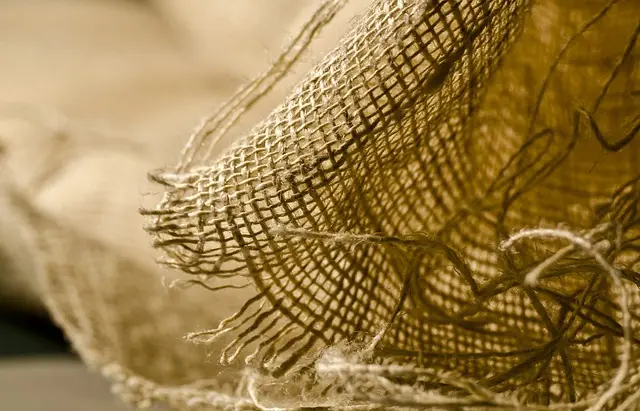Kratom, a plant from Southeast Asia with alkaloids like mitragynine and 7-hydroxymitragynine, has garnered attention in Louisiana for its potential anti-inflammatory benefits. These compounds may interact with opioid receptors to provide pain relief and reduce inflammation, which is particularly relevant in a state with many physically demanding jobs and chronic inflammatory conditions. While anecdotal evidence and initial scientific studies support its use, it's important for potential users in Louisiana to approach kratom with caution due to possible side effects and interactions with other substances. Healthcare professionals should be consulted for personalized advice on safe and legal usage, considering the varying regulatory statuses of kratom across states. The interest in kratom as a natural supplement for inflammation management is increasing, but more clinical trials are needed to establish its efficacy and safety. Kratom louisiana users should stay informed about its legal standing, understand the different strains available, and follow expert guidance on dosage and interactions to ensure they make informed decisions about incorporating kratom into their health regimens.
Exploring the therapeutic potential of kratom as a natural approach to inflammation reduction, this article delves into its anti-inflammatory properties, particularly for Louisiana residents. We’ll unravel the scientific basis behind kratom’s effects and provide guidance on its integration for effective inflammation management. Kratom Louisiana users will gain valuable insights from “Inflammation Reduction with Kratom,” an informative piece that bridges the gap between natural remedies and evidence-based science.
- Understanding Kratom's Role in Inflammation Reduction for Louisiana Residents
- The Science Behind Kratom and Its Anti-Inflammatory Properties
- Integrating Kratom Louisiana: A Guide to Safe and Effective Use for Inflammation Management
Understanding Kratom's Role in Inflammation Reduction for Louisiana Residents

Kratom, a plant native to Southeast Asia, has garnered attention in Louisiana for its potential anti-inflammatory properties. Residents seeking natural alternatives to conventional medication for inflammation management may find kratom a compelling option due to its alkaloid content, which includes mitragynine and 7-hydroxymitragynine. These compounds are believed to interact with the body’s opioid receptors, offering pain relief and modulating the immune response associated with inflammation.
The use of kratom for inflammation reduction is supported by anecdotal evidence and emerging scientific research. In Louisiana, where a significant portion of the population engages in physically demanding occupations or deals with chronic inflammatory conditions, kratom louisiana offers a potential avenue for relief. It’s important to approach the use of kratom with caution, as it can interact with other substances and may have side effects. Therefore, individuals considering kratom as part of their health regimen should consult healthcare professionals, particularly given the regulatory status of kratom that varies by state and the need for further clinical trials to fully understand its efficacy and safety profile in reducing inflammation.
The Science Behind Kratom and Its Anti-Inflammatory Properties

MIT and alkaloid composition in kratom leaves contribute to its anti-inflammatory effects, primarily through the action of alkaloids such as mitragynine and 7-hydroxymitragynine. These compounds have been observed to inhibit pro-inflammatory cytokines and enzymes involved in the inflammatory response, suggesting a potential therapeutic role for kratom in conditions characterized by excessive inflammation. In Louisiana, where pain management and alternative therapies are of particular interest, the use of kratom as a natural supplement to alleviate inflammation is gaining attention among both healthcare professionals and consumers seeking non-opioid solutions. Preliminary studies indicate that kratom may offer anti-inflammatory benefits comparable to conventional medications, making it a subject of growing scientific interest within the state’s diverse medical community. The potential of kratom louisiana as an adjunct or alternative therapy for inflammation-related conditions is an area ripe for further research and clinical evaluation.
Integrating Kratom Louisiana: A Guide to Safe and Effective Use for Inflammation Management

When considering the integration of kratom into one’s health regimen for inflammation reduction in Louisiana, it is imperative to approach the subject with a well-informed perspective. Kratom, derived from the leaves of the Mitragyna speciosa tree, has been traditionally used in Southeast Asian cultures for its various medicinal properties. In Louisiana, where a significant population seeks natural remedies for health concerns, kratom has gained attention as a potential aid in managing inflammation. Users in Louisiana interested in exploring kratom’s anti-inflammatory effects should first be aware of the various strains available, such as Maeng Da, Bali, and Thai, each with distinct alkaloid profiles that may influence their efficacy for individual needs.
It is crucial to understand the legal status of kratom in Louisiana before incorporating it into one’s wellness routine. As regulations can vary by location, users must verify compliance with state laws to ensure safe and legal use. Additionally, the dosage and frequency of intake play a pivotal role in determining kratom’s effectiveness for inflammation reduction. Consulting healthcare professionals knowledgeable about kratom is recommended to navigate this process safely and effectively. They can provide guidance on appropriate dosages, potential interactions with other medications, and personalized health considerations. By adhering to these guidelines and staying informed on the latest research, individuals in Louisiana can explore the use of kratom as part of a comprehensive approach to managing inflammation.
Kratom, a plant native to Southeast Asia, has garnered attention in Louisiana for its potential role in inflammation reduction. The scientific community has elucidated its anti-inflammatory properties, providing a natural alternative for managing inflammation. This article has explored the mechanisms behind kratom’s effects, offering guidance for safe and effective use among Louisiana residents seeking relief from inflammatory conditions. As with any supplement, it is crucial to approach its use with careful consideration of personal health factors. For those in Louisiana considering kratom as part of their wellness regimen, the insights provided here aim to inform a thoughtful and responsible choice for healthier living.






